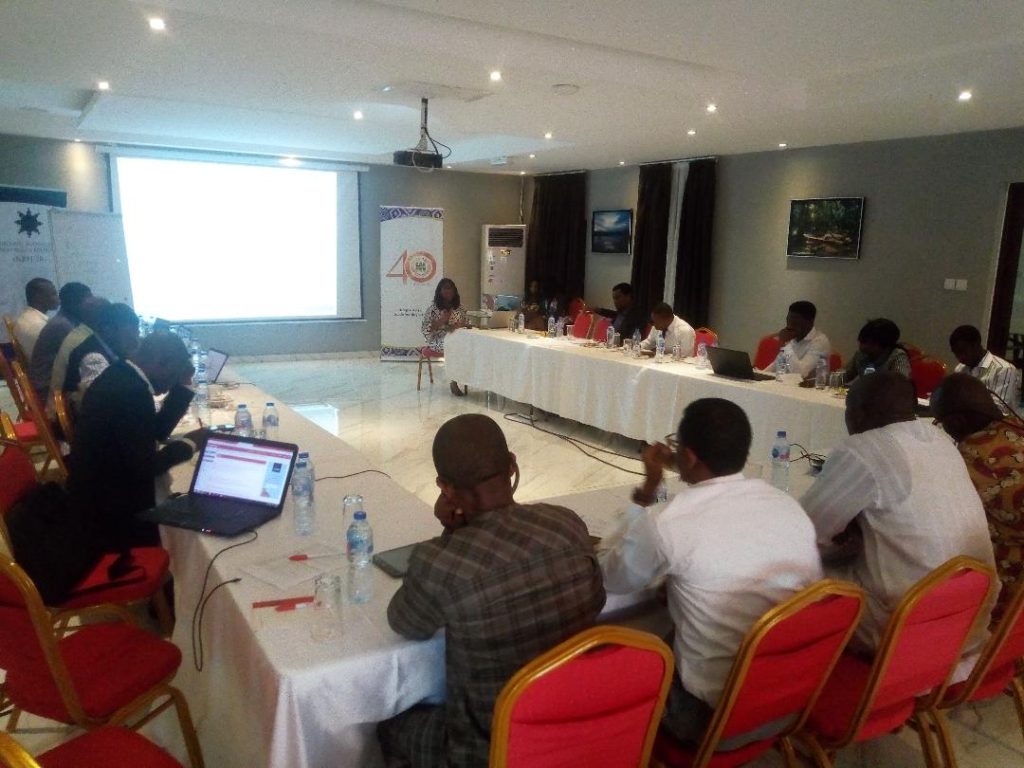Alao Abiodun writes on the training for journalists on Business and Human Rights reporting
On Tuesday, 21 May, Global Rights Nigeria, a human rights organization working to build grassroots movements that promote and protect the rights of marginalized populations ended a two-day training workshop on “Media Training on Business and Human Rights Reporting in Nigeria”.
The workshop held in Lagos with over 20 journalists participating was aimed at facilitating increased and informed media coverage on the intricacies of business and human rights in Nigeria, and in particular, the application of the United Nations Guiding Principles on Business and Human Rights.
The training incorporated interactive sessions, documentaries, active learning modules on human rights, social and environmental impact assessments, as well as the institutions, laws and regulations governing business and human rights in Nigeria.
Speaking during the opening session of the two-day training, the Executive Director, Global Rights, Abiodun Baiyewu implored the media to continue in its tasking role of holding the government accountable and dwell more on doing stories focused on business and human rights issues in the country.
While speaking on mining in Nigeria, she said “Environmental Impact Assessment is a crucial undertaking for any government that is serious about the entrenchment of corporate accountability, protection of lives of its citizens & sustainable development”
Concerning the tension between companies and host communities created in the extractive industry, she cited examples of some notable Nigeria’s extractive industry with a chequered history of environmental degradation which impacts on extractive host communities while their host communities bear the brunt of these negative impacts.
READ ALSO: Campus Hubs trains student journalists
The two-day training had different engaging sessions including “Understanding Consumer & Employee’s Rights”, facilitated by Mrs. Susie Onwuka, Head of Consumer Protection Commission and “Overview of the basics of Human Rights: Concept, Laws and Policies by Aderonke Ige of Global Rights laying a foundation for the probing questions on the law & Human Rights compliance in Nigeria.
Gabriel Prolly of CSR in Action also made an insightful presentation on the subject of Corporate Social Responsibility stating that CSR neither automatically mitigates infringements on people’s rights nor substitute for irresponsible corporate behaviour.
The training further examined the role of media in human rights advocacy during the session by Edmund Obilo during which he urged journalists to have the power of projection armed up with facts and the ability to interpret the facts when writing stories.
Mr. Dayo Aiyetan, Executive Director of the International Centre for Investigative Reporting (ICIR) spoke on Principles for investigative journalism and the use of the freedom of Information Act for journalists.
While noting that since 2011 that FOI act has been passed, it has helped exposed secrecy about government activities and provided credible information, he urged journalists to effectively make use of the act when writing stories.
Participants at the training included journalists from PREMIUM TIMES, Tribune, ThisDay, BusinessDay and others
Niyi Oyedeji, a reporter from Tribune Online, said the programme met his expectations. “Personally, I have gained more insights on how to do proper investigations both on human rights and other issues.”
At the end of the two-day media training, Ms. Jummai Pam of the Global Rights urged journalists to put into practice what they’ve learnt. Participants were issued certificates.


